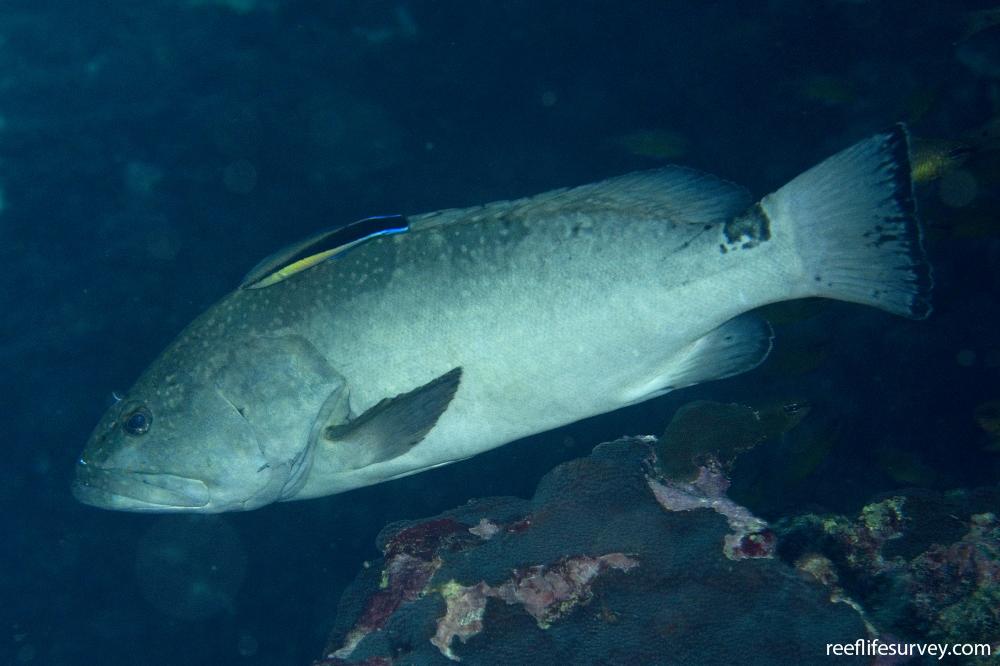Epinephelus daemelii
Black rockcod | Black Cod | Saddled Grouper | Saddled Rockcod | Saddletail Grouper | Spotted Black GrouperSimilar Species
Same Genus
Distribution
Temperate Australasia, Tropical Indo-Pacific
Description
Body markings of oblique bars over back and white spots on face can all be rapidly switched to jet black or all-white. Individuals on offshore reefs often light while juveniles in estuaries are dark. Six oblique bars are almost always present in upper half of the body, the last of which consisting of or containing a dark rounded patch at upper tail base. Now totally protected after heavy fishing pressure greatly reduced population numbers last century.
Information
Max Size: 200 cm
Sea Temperature Range: 15.6-25.5°C
Depth: 2-50 m
Habitat Generalization Index: 5.94
Also referred to as the SGI (Species Generalisation Index), this describes the habitat niche breadth of the species. Species with values less than 15 are found in a relatively narrow range of reef habitat types (specialists), while those over 25 may be found on most hard substrates within their range (generalists). Learn more here.
Conservation and Rarity
IUCN Status: Near Threatened
Occurrence: Frequent (18.9% of sites)
Occurrence describes how often the species is found on surveys within its distribution. It is calculated as the % of reef sites surveyed by RLS divers across all the ecoregions in which the species has been observed
Abundance: Solitary (1 per transect)
Abundance is calculated as the average number of individuals recorded per RLS transect, where present.
Edit by: GJ Edgar. 2008. Australian Marine Life. New Holland, Sydney


















































